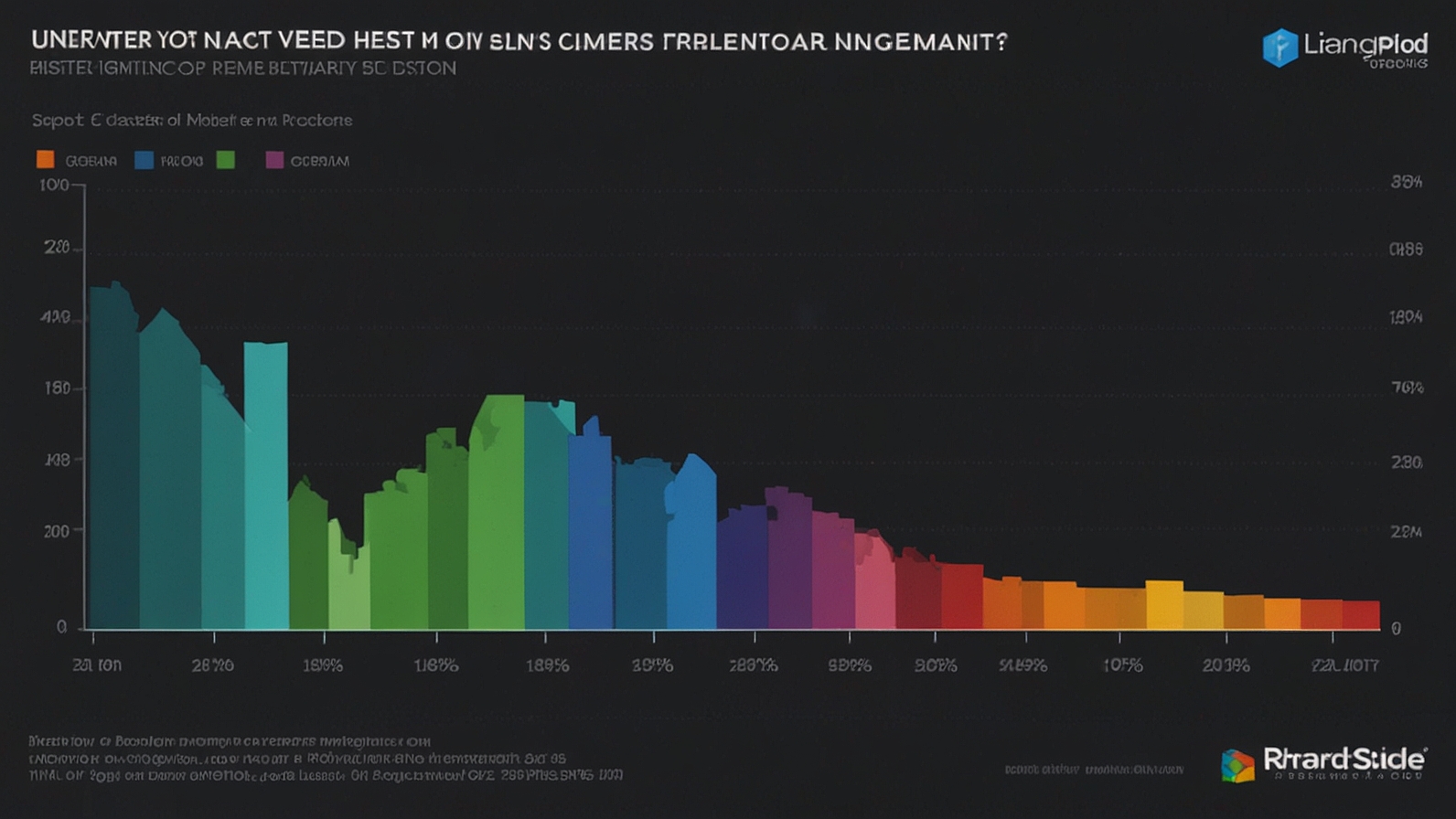Business
Investing in Technorozen Mutual Funds: A Beginner’s Guide to Financial Growth

Introduction Technorozen
Are you new to investing and eager to learn how to grow your money? You’ve likely heard the term “mutual funds” tossed around in financial conversations, but what exactly are they? And more importantly, how can they benefit you as a first-time investor, financial literacy seeker, or small business owner? In this comprehensive guide, we’ll demystify mutual funds and introduce you to Technorozen, a leading option for those looking to make their first investment.
By the end of this article, you’ll understand what mutual funds are, how they work, and why they could be a smart investment choice for you. We’ll cover the basics, explore different types of mutual funds, and offer practical tips on how to choose the right one. Whether you’re looking to diversify your portfolio or simply want a professional to manage your investments, this guide will provide you with the knowledge you need to make informed decisions.
What Are Mutual Funds?
Definition
Mutual funds are pooled investments that collect money from many investors to buy a diversified portfolio of securities. These can include stocks, bonds, and other assets. Essentially, when you invest in a mutual fund, you’re buying a small piece of a large, professionally-managed investment portfolio. This pooling of resources allows individual investors to access a diversified mix of investments that might otherwise be out of reach.
Types of Mutual Funds
There are several types of mutual funds, each designed to meet different investment goals and risk tolerances. The most common types include:
- Equity Funds: These funds invest primarily in stocks. They aim for capital growth and are suitable for investors willing to take on higher risk for the potential of higher returns.
- Bond Funds: These funds invest in bonds and other debt instruments. They are generally considered safer than equity funds and are ideal for those seeking regular income and lower risk.
- Money Market Funds: These funds invest in short-term, low-risk securities like Treasury bills. They offer high liquidity and are suitable for conservative investors looking for stability.
- Hybrid Funds: These funds invest in a mix of stocks and bonds, offering a balanced approach. They aim to provide both capital growth and income, making them suitable for moderate-risk investors.
How Mutual Funds Work
Investment Process
The process of investing in mutual funds is straightforward. When you purchase shares in a mutual fund, your money is pooled with that of other investors. The fund manager then uses this collective pool to buy a diversified portfolio of securities. This diversification helps spread risk and can improve the potential for returns.
Role of Fund Managers
Fund managers play a crucial role in the success of mutual funds. These professionals are responsible for making investment decisions on behalf of the fund’s investors. They conduct thorough research, analyze market trends, and select securities that align with the fund’s objectives. The expertise and experience of fund managers can significantly impact the performance of a mutual fund.
Benefits of Investing in Mutual Funds
Diversification
One of the primary benefits of mutual funds is diversification. By pooling money from many investors, mutual funds can invest in a wide range of assets. This diversification helps spread risk, as the performance of one security can be offset by the performance of others. For individual investors, achieving this level of diversification independently can be challenging and costly.
Professional Management
Another significant advantage of mutual funds is professional management. Fund managers bring years of experience and expertise to the table. They constantly monitor the market and make informed decisions to maximize returns while managing risk. This professional oversight can be particularly beneficial for first-time investors who may lack the time or knowledge to manage their investments effectively.
Liquidity
Mutual funds offer high liquidity, meaning you can buy or sell your shares at any time. Unlike some other investments, there are no long lock-in periods. This flexibility makes mutual funds an attractive option for those who may need access to their money at short notice.
Accessibility
Mutual funds are accessible to both small and large investors. Many funds have low minimum investment requirements, making it easy for anyone to get started. This accessibility democratizes investing, allowing even those with limited funds to participate in the market and benefit from professional management.
Types of Mutual Funds
Equity Funds
Equity funds invest primarily in stocks. They aim for capital appreciation and are suitable for investors with a higher risk tolerance. These funds can be further categorized into large-cap, mid-cap, and small-cap funds, depending on the size of the companies they invest in. Large-cap funds tend to be more stable, while small-cap funds offer higher growth potential but come with increased risk.
Bond Funds
Bond funds invest in bonds and other debt instruments. They are generally safer than equity funds and provide regular income through interest payments. Bond funds can be classified based on the type of bonds they invest in, such as government bonds, corporate bonds, or municipal bonds. These funds are ideal for conservative investors seeking stability and income.
Money Market Funds
Money market funds invest in short-term, low-risk securities like Treasury bills and commercial paper. They offer high liquidity and are considered one of the safest investment options. While the returns may be lower compared to equity or bond funds, money market funds provide a safe haven for investors looking to preserve their capital.
Hybrid Funds
Hybrid funds invest in a mix of stocks and bonds, offering a balanced approach. They aim to provide both capital growth and income, making them suitable for moderate-risk investors. By combining different asset classes, hybrid funds offer the benefits of diversification and can adapt to changing market conditions.
How to Choose the Right Mutual Fund
Investment Goals
The first step in choosing the right mutual fund is to align it with your investment goals. Are you saving for retirement, a down payment on a house, or your child’s education? Different funds are designed to meet different objectives, so it’s essential to choose one that aligns with your financial goals.
Risk Tolerance
Consider your risk tolerance when selecting a mutual fund. If you’re comfortable with higher risk for the potential of higher returns, equity funds might be a good fit. If you prefer stability and regular income, bond funds or money market funds may be more suitable. Hybrid funds offer a balanced approach for those with moderate risk tolerance.
Fund Performance
Evaluating past performance is crucial, but it shouldn’t be the only factor in your decision. Look for funds with a consistent track record of performance over several years. Also, consider the fund manager’s experience and the fund’s investment strategy. Remember, past performance is not indicative of future results, but it can provide insights into the fund’s management and potential.
Fees and Expenses
Understanding the costs associated with mutual funds is essential. These fees can include management fees, administrative fees, and sales charges. High fees can eat into your returns, so look for funds with reasonable expense ratios. Many funds offer no-load options, which means they don’t charge a sales commission, making them more cost-effective.
Common Myths About Mutual Funds
Myth 1: Mutual Funds Are Only for Experts
One common misconception is that mutual funds are only suitable for experts. In reality, mutual funds are designed for all types of investors, from beginners to seasoned professionals. The professional management and diversification offered by mutual funds make them accessible and beneficial for everyone.
Myth 2: High Returns Are Guaranteed
Another myth is that mutual funds guarantee high returns. While mutual funds have the potential to provide good returns, they also come with risks. The performance of a mutual fund depends on various factors, including market conditions and the fund manager’s decisions. It’s essential to have realistic expectations and understand that all investments carry some level of risk.
Myth 3: Mutual Funds Are Too Expensive
Some people believe that mutual funds are too expensive due to management fees and other costs. While it’s true that mutual funds have associated fees, many funds offer low-cost options. Additionally, the benefits of professional management and diversification often outweigh the costs, making mutual funds a cost-effective investment option.
Understanding SIPs
Definition and Concept of SIPs
A Systematic Investment Plan (SIP) is a method of investing a fixed sum of money regularly in mutual funds. Instead of making a one-time investment, you invest small amounts at regular intervals—weekly, monthly, or quarterly. This approach allows you to build a substantial corpus over time without straining your finances.
How SIPs Work
When you sign up for an SIP, the specified amount is automatically debited from your bank account and invested in your chosen mutual fund. The money is used to purchase units of the mutual fund at the prevailing Net Asset Value (NAV). Over time, as you continue to invest, you accumulate more units, benefiting from the power of compounding.
Benefits of Investing Through SIPs
- Disciplined Investing:
SIPs instill a sense of financial discipline, encouraging you to save and invest regularly.
- Rupee Cost Averaging (RCA):
By investing regularly, you buy more units when prices are low and fewer units when prices are high. This averages out the cost of investment, reducing the impact of market volatility.
- Power of Compounding:
Over time, the returns on your investments generate their own returns, significantly boosting your overall wealth.
- Flexibility:
SIPs offer flexibility in terms of the amount invested and the frequency of investments. You can start with a small amount and gradually increase it as your financial situation improves.
- Convenience:
Once set up, SIPs require minimal maintenance. Automated debits and investments mean you don’t have to worry about remembering to invest.
SIP vs. Lump Sum Investment
While SIPs involve investing small amounts regularly, lump-sum investments involve investing a large amount of money at once. Both approaches have their pros and cons:
- Market Timing:
Lump-sum investments require you to time the market correctly to maximize returns, which can be challenging for most investors. SIPs, on the other hand, spread your investments over time, reducing the risk of poor market timing.
- Risk Management:
SIPs offer better risk management by averaging out the cost of investments and minimizing the impact of market volatility. Lump-sum investments can be riskier, especially if made during market peaks.
- Affordability:
SIPs are more affordable as they allow you to start with a small amount and invest regularly. Lump-sum investments require a significant upfront capital outlay, which may not be feasible for everyone.
SIPs and Goal Setting
Aligning SIPs with Financial Goals
One of the key advantages of SIPs is their ability to align with your financial goals. Whether you’re saving for a short-term goal like a vacation or a long-term goal like retirement, SIPs can help you achieve them.
SIPs for Short-term, Medium-term, and Long-term Goals
- Short-term Goals:
For goals within 1-3 years, consider SIPs in debt mutual funds or liquid funds. These funds offer lower risk and stable returns.
- Medium-term Goals:
For goals within 3-5 years, consider SIPs in balanced or hybrid mutual funds. These funds offer a mix of equity and debt, balancing risk and return.
- Long-term Goals:
For goals beyond 5 years, consider SIPs in equity mutual funds. These funds offer higher returns but come with higher risk. Over the long term, equities tend to outperform other asset classes.
Calculating SIP Amount Based on Goals
To determine how much you need to invest through SIPs to achieve your financial goals, consider the following steps:
- Define Your Goals:
Clearly define your financial goals, including the amount needed and the time frame to achieve them.
- Estimate Returns:
Estimate the expected rate of return on your SIP investments based on historical performance of the chosen mutual funds.
- Calculate SIP Amount:
Use an SIP calculator to determine the monthly investment amount required to achieve your goals. Many online platforms offer free SIP calculators that simplify this process.
SIPs and Asset Allocation
Importance of Diversification
Diversification is a key principle of successful investing. It involves spreading your investments across different asset classes to reduce risk. SIPs can play a crucial role in diversifying your investment portfolio.
Choosing the Right Investment Options
When selecting mutual funds for your SIPs, consider the following factors:
- Fund Performance:
Assess the historical performance of the mutual funds over different time periods.
- Risk Profile:
Match the risk profile of the mutual funds with your own risk tolerance.
- Fund Manager:
Evaluate the track record and expertise of the fund manager.
- Expense Ratio:
Compare the expense ratios of different funds to ensure you’re getting value for your money.
- Investment Horizon:
Align the investment horizon of the mutual funds with your financial goals.
Balancing Risk and Return
To balance risk and return, consider creating a diversified portfolio that includes a mix of equity, debt, and hybrid mutual funds. This approach helps mitigate risk while maximizing returns.
SIPs and Tax Implications
Tax Benefits of SIPs
SIPs offer several tax benefits that can enhance your overall returns:
- Equity-linked Savings Scheme (ELSS):
Investments in ELSS mutual funds qualify for tax deductions under Section 80C of the Income Tax Act, up to a limit of ₹1.5 lakh per financial year.
- Long-term Capital Gains (LTCG) Tax:
LTCG on equity mutual funds is tax-free up to ₹1 lakh per financial year. Gains exceeding this limit are taxed at 10%.
- Dividends:
Dividends received from mutual funds are tax-free in the hands of investors.
Tax Considerations for Different Investment Options
Different types of mutual funds have different tax implications:
- Equity Funds:
LTCG on equity funds is tax-free up to ₹1 lakh per financial year. Gains exceeding this limit are taxed at 10%. Short-term capital gains (STCG) are taxed at 15%.
- Debt Funds:
LTCG on debt funds held for more than three years is taxed at 20% with indexation benefits. STCG on debt funds is taxed as per the investor’s income tax slab.
- Hybrid Funds:
The tax treatment of hybrid funds depends on their equity and debt allocation.
SIPs and Market Volatility
How SIPs Help in Managing Market Fluctuations
Market volatility can be a source of concern for investors. However, SIPs can help manage market fluctuations effectively:
- Rupee Cost Averaging (RCA):
By investing regularly, you buy more units when prices are low and fewer units when prices are high. This averaging effect reduces the impact of market volatility on your investments.
- Long-term Perspective:
SIPs encourage a long-term investment perspective, helping you stay invested through market ups and downs.
Rupee Cost Averaging (RCA) Concept
RCA is a core principle of SIP investing. It involves spreading your investments over time, reducing the risk of poor market timing and ensuring that you benefit from lower average costs.
SIPs and Investor Psychology
Overcoming Investment Fears
Investing can be daunting, especially for new investors. SIPs help overcome investment fears by:
- Reducing Risk:
SIPs reduce the risk of poor market timing and market volatility.
- Instilling Discipline:
Regular investments through SIPs instill financial discipline, making it easier to stay committed to your investment goals.
- Providing Flexibility:
SIPs offer flexibility in terms of investment amount and frequency, making them accessible to investors with varying financial capacities.
Benefits of Disciplined Investing
Disciplined investing through SIPs offers several benefits:
- Consistent Growth:
Regular investments lead to consistent growth of your investment corpus over time.
- Reduced Emotional Bias:
SIPs reduce the impact of emotional biases on investment decisions, promoting rational investing.
- Achieving Financial Goals:
Disciplined investing through SIPs helps you achieve your financial goals systematically.
SIPs and Technology
Online Platforms for SIP Investments
Technology has made SIP investments more accessible and convenient. Several online platforms offer SIP investment services, allowing you to:
- Set Up SIPs:
Easily set up SIPs through user-friendly online platforms.
- Monitor Investments:
Track your SIP investments and performance online.
- Make Adjustments:
Adjust your SIP amount and frequency as needed.
Tracking SIP Performance
Online platforms provide tools and features to track the performance of your SIP investments, helping you stay informed and make informed decisions.
SIPs and Financial Planning
Incorporating SIPs into Overall Financial Plan
SIPs play a crucial role in overall financial planning. They help you systematically achieve your financial goals while maintaining financial discipline.
SIPs and Retirement Planning
SIPs are an excellent tool for retirement planning. By investing regularly in equity mutual funds through SIPs, you can build a substantial retirement corpus over time.
YOU MAY ALSO LIKE
Transitioning to T+1 Settlement: What It Means for Investors
Conclusion
In summary, mutual funds offer a versatile and accessible way to invest in a diversified portfolio managed by professionals. They provide several benefits, including diversification, professional management, liquidity, and accessibility. Whether you’re a first-time investor, a financial literacy seeker, or a small business owner, mutual funds can be a valuable addition to your investment strategy.
If you’re considering investing in mutual funds, take the time to understand your investment goals, risk tolerance, and the various types of funds available. By making informed decisions, you can leverage the advantages of mutual funds to grow your wealth and achieve your financial objectives.
Systematic Investment Plans (SIPs) offer a disciplined, flexible, and efficient approach to investing. Whether you’re a new investor, millennial, or retirement planner, SIPs can help you achieve your financial goals systematically. By understanding how SIPs work and incorporating them into your overall financial plan, you can benefit from the power of disciplined investing, rupee cost averaging, and the potential for long-term wealth creation.
Frequently Asked Questions
1. What is a mutual fund and how does it work?
A mutual fund is a pool of money collected from many investors to invest in securities like stocks and bonds. It is managed by professional fund managers who allocate the fund’s investments to generate returns for investors.
2. What are the benefits of investing in mutual funds?
The key benefits include diversification, professional management, liquidity, and ease of access. Mutual funds spread investments across various assets, reducing risk and potentially improving returns.
3. How do I choose the right mutual fund?
To choose the right mutual fund, align your selection with your investment goals, consider your risk tolerance, evaluate the fund’s past performance, and compare fees and expenses.
4. Are mutual funds safe investments?
While mutual funds are generally considered safer due to diversification and professional management, they are not risk-free. The level of risk depends on the types of securities the fund invests in.
5. Can I lose money in a mutual fund?
Yes, mutual funds are subject to market risks and do not guarantee returns. Depending on market conditions, you could lose some or all of your invested capital.
Business
Avoidable errors in long-distance office moves

Long-distance office relocations require careful planning, logistics, and coordination. As with planning any event, mistakes are unavoidable, and in this case even minor errors can escalate into major problems that are difficult or costly to fix once the move is underway.
While many challenges are inherent to moving operations, several mistakes can be prevented through careful preparation and professional oversight https://bestmovescalgary.ca/long-distance-moving-services/. To better prepare for the relocation it is better to keep in mind these avoidable mistakes:
- Failing to catalog office equipment, furniture, and supplies accurately can result in lost items, missing parts, or duplicate shipments. This issue is particularly problematic when sensitive technology, specialized furniture, or essential documents are involved. Creating a complete, detailed inventory before the move allows movers and managers to track every item, reducing the risk of permanent loss or replacement costs.
- Computers, servers, and audiovisual equipment should be packed properly as they are highly sensitive to shock, temperature fluctuations, and moisture. Using inappropriate packing materials or skipping protective measures can result in hardware failure, data loss, or costly repairs. Professional movers mitigate these risks by supplying specialized crates, anti-static packaging, and cushioning techniques designed specifically for delicate office technology.
- Disorganization of critical documents also presents major challenges. Legal files, financial records, and personnel information often require secure, labeled, and traceable transport. Failing to properly classify and store these documents can result in misplaced documents, unauthorized access, or delays in reestablishing operational functionality. Advance planning, including the use of secure containers and digital tracking systems, can help prevent these issues entirely.
- Long-distance moves often require navigating unfamiliar highways, bridges, and urban streets. Trucks may encounter low clearance, narrow passages, or weight restrictions. Without pre-assessment and route optimization, vehicles may be delayed or forced to take a different route, which adds time and cost. Selecting a route based on truck dimensions and traffic patterns is a preventive measure that avoids such complications.
- Errors in furniture disassembly and reassembly are also difficult to rectify. Modular office furniture, cubicles, and conference tables require proper disassembly to prevent structural damage. Incorrect handling may result in warped panels, stripped screws, or compromised stability. Documented procedures and professional handling ensure that items arrive intact and operational at the new location quickly.
- Office relocations can disrupt workflows if insufficient time is allocated for unloading, setting up, and reconnecting technology. Misjudging these timelines can delay business operations for days. To prevent this, detailed scheduling, staged planning, and coordination with movers are required to maintain operational continuity.
Each of these mistakes is largely preventable through foresight, preparation, and the expertise of professional movers. Addressing these issues in advance ensures a smoother, safer, and more efficient long-distance office relocation.
READ ALSO: Moving Services in Melbourne: A Comprehensive Guide
Business
What Are Same-Day Settlement Loans? Everything You Need to Know

When navigating the complexities of a lawsuit, the financial burdens can quickly become overwhelming. Between mounting medical bills, essential living expenses, and the potential loss of income due to time off work, the waiting period for a settlement check can seem interminable and create immense stress. This is precisely where same-day settlement loans offer a vital solution.
If you find yourself in urgent need of rapid access to cash while your legal case is still pending, this comprehensive guide is designed to provide you with all the crucial information you need. We will delve into every aspect of these unique financial tools, from a detailed explanation of how these loans function to an exploration of their significant benefits, and what you can expect throughout the entire process. Our aim is to demystify same-day settlement loans, empowering you with the knowledge to make informed decisions during a challenging time.
What Is a Settlement Loan?
A settlement loan (also known as pre-settlement funding, lawsuit funding, or litigation financing) gives you a cash advance based on the expected value of your pending lawsuit. That means you can get money now to help cover your expenses while your case is still being resolved. Once your case settles or you win in court, you repay the loan from your settlement proceeds.
A settlement loan, often referred to as pre-settlement funding, lawsuit funding, or litigation financing, provides individuals with a crucial financial lifeline in the form of a cash advance. This advance is calculated based on the anticipated value of their pending lawsuit, offering a vital solution during what can often be a protracted and financially challenging legal process.
Advantages
The fundamental advantage of this type of funding is that it enables plaintiffs to access money immediately. This cash infusion can be used to cover a wide array of expenses that inevitably arise while a legal case is still in the process of being resolved. These expenses might include, but are not limited to, daily living costs such as rent or mortgage payments, utility bills, groceries, and transportation. Furthermore, it can help plaintiffs manage medical bills and ongoing treatment costs related to their injuries, especially if their lawsuit stems from a personal injury claim. Without such funding, many plaintiffs might feel pressured to accept a low settlement offer prematurely due to financial duress, even if a larger award is likely with further legal proceedings.
The structure of a settlement loan is designed to align with the outcome of the legal case. Once a settlement is reached, or a favorable judgment is secured in court, the loan is repaid directly from the proceeds of that settlement or award. This arrangement is non-recourse, meaning that if the plaintiff loses their case and receives no settlement or judgment, they are generally not obligated to repay the loan. This characteristic significantly reduces the financial risk for the plaintiff, as the funding company assumes the risk of the lawsuit’s outcome.
In essence, settlement loans empower plaintiffs to navigate the legal system with greater financial stability, allowing their legal teams to pursue the best possible outcome without the added pressure of immediate financial hardship. It ensures that justice is not compromised by economic constraints, providing a bridge between the initiation of a lawsuit and its ultimate resolution.
Common types of cases that may qualify include:
- Personal injury
- Wrongful death
- Slip and fall accidents
- Medical malpractice
- Product liability
Same-Day Settlement Loans vs. Traditional Loans
Unlike traditional bank loans, same-day settlement loans don’t require:
- A credit check
- Proof of income
- Employment verification
Funding decisions are based solely on the strength and estimated value of your case; not your financial history.
Best of all, approval and funding can often happen within hours, not days or weeks.
READ ALSO: Payday Loans and Your Credit Score: Separating Myth from Fact
Why Choose a Pre-Settlement Loan?
A pre-settlement loan can help you cover:
- Medical bills
- Legal fees
- Rent and utilities
- Everyday living expenses
This financial relief allows you and your attorney the time to fight for the maximum settlement, without feeling pressured to accept a low offer just to make ends meet.
Before choosing a lender, take time to compare companies, interest rates, and terms. A reputable lender will offer transparent rates and a free case evaluation before you sign anything.
How Much Does a Lawsuit Loan Cost?
There are no upfront fees or out-of-pocket costs.
The total repayment amount (including interest) is clearly outlined in a non-binding agreement, and payment is only due if you win your case.
What Happens If You Lose Your Case?
If you lose your lawsuit, you generally owe nothing.
That’s because settlement loans are non-recourse, meaning the lender assumes the risk. You only repay if you receive compensation.
Other Benefits of Same-Day Settlement Loans
- No Credit Required: Approval is based on your case, not your credit score.
- Fast Access to Cash: Many applicants receive funding within 24 hours.
- Negotiation Power: You can take the time you need to negotiate a fair settlement — without financial stress dictating your decisions.
How Do Settlement Loans Compare to Payday Loans?
While both options provide quick cash, payday loans often come with extremely high interest rates (sometimes over 400–500% APR). They also require proof of income and must be repaid from your next paycheck; often trapping borrowers in a cycle of debt.
In contrast, lawsuit loans are tied to your case’s outcome, not your income. You don’t repay until you win.
Secured vs. Unsecured Loans
- Secured loans (like auto or home loans) use collateral such as your car or property, which the lender can seize if you fail to pay.
- Unsecured loans have no collateral but often carry higher interest rates, and may involve hidden fees.
Settlement loans are a unique form of unsecured financing that’s risk-free for the borrower because repayment depends solely on your legal win.
Tips for a Successful Lawsuit
- Hire an experienced attorney who specializes in your case type.
- Be patient. Legal cases often take longer than expected.
- Cooperate with your attorney on discovery and document requests.
- Attend settlement conferences to understand your case’s potential value.
- Prepare for depositions and always present yourself professionally in court.
Get Fast Legal Funding Today
If you’re struggling to pay bills while waiting for your settlement, same-day settlement loans can give you the breathing room you need to stay financially stable and focused on your recovery.
Contact us today to learn more about our quick, risk-free settlement funding options. Get the cash you need, when you need it most.
YOU MAY ALSO LIKE: Instant Loans vs. Traditional Loans: Which One Is Right for You?
Business
Unlock Engagement: How Video&a Transforms Business Content

What if you could turn a passive viewer into an active participant with the click of a button? Imagine a potential customer watching your product demo, and right at the moment they wonder about pricing, a subtle prompt appears: “Curious about our plans? Ask now!” They type their question and get an instant, clear answer from the video itself, without ever hitting pause. This isn’t a glimpse into the distant future of marketing; it’s the powerful reality of Video&a, a revolutionary approach that’s redefining how businesses communicate.
Gone are the days of one-way, linear video content. Today’s audiences crave interaction and personalization. They don’t just want to be talked at; they want a conversation. This is where Video&a shines—a dynamic, AI-assisted strategy that embeds interactive Q&A directly into the video experience. It’s like giving every single viewer their own personal guide, making your content more discoverable, memorable, and effective across every touchpoint of your business.
What Exactly Is Video&a? Breaking Down the Buzzword
Let’s demystify this term. At its core, Video&a is a content methodology that integrates interactive question-and-answer functionality within a video player. It uses artificial intelligence to make this process seamless and scalable.
Think of it like this: a standard video is a monologue. It’s a speaker delivering a message to a silent audience. Video&a, however, is a dialogue. It’s a two-way street where the viewer can steer the conversation, digging deeper into the topics that matter most to them, right when their curiosity is piqued.
How It Works in Practice:
A company launches a new software feature and creates a tutorial video. Using a Video&a platform, they can:
- Pre-load common questions: The AI is fed a list of FAQs and their answers beforehand.
- Enable live interaction: Viewers can type questions in a sidebar as they watch.
- Receive instant AI-powered answers: The AI scans the query and instantly either pulls a timestamp from the video that answers it, displays a text answer, or even generates a short spoken response using text-to-speech.
- Create a living FAQ: The system learns from new questions, constantly improving its knowledge base for future viewers.
This transforms a static video into an evergreen, interactive resource that becomes more valuable over time.
Why Your Business Needs to Embrace Interactive Video Now
The data doesn’t lie. Interactive content consistently outperforms passive content. But why is Video&a such a game-changer? The benefits spread across marketing, sales, support, and training.
Skyrocket Engagement and Dwell Time
Search engines, especially Google and YouTube, love content that keeps users engaged. The longer a visitor stays on your page (dwell time), the more favorably algorithms rank your content. Video&a is incredibly effective at this. Instead of clicking away after 30 seconds, viewers are compelled to stay, ask questions, and explore the content more deeply. This sends powerful positive signals to search engines, boosting your organic discoverability.
Dramatically Improve Learning and Retention
For e-learning and internal training, Video&a is a powerhouse. The Ebbinghaus forgetting curve shows we forget most of what we learn within days. Interactive video combats this by transforming learners from passive recipients into active participants. This process of inquiry and immediate feedback reinforces knowledge, dramatically improving information retention and application. It’s the difference between listening to a lecture and having a one-on-one tutoring session.
Scale Personalized Customer Support
Customer support teams are often overwhelmed with repetitive queries. Imagine deflecting a significant portion of these tickets without lifting a finger. A well-built Video&a system integrated into your help center can do just that. A viewer watching a setup guide can ask, “What do I do if the blue light is blinking?” and get an immediate, accurate answer. This provides 24/7 support, reduces ticket volume, and empowers customers to find solutions faster.
Generate Rich Data and Consumer Insights
Every question asked is a priceless data point. Video&a platforms provide analytics that reveal exactly what your audience is curious about, what they’re confused by, and what information is missing from your content. This is pure gold for your product, marketing, and content teams, allowing you to refine your messaging, develop new content, and ultimately build better products that serve your customers’ real needs.
Putting Video&a to Work: Real-World Applications
This strategy isn’t just theoretical; it’s delivering real results for forward-thinking businesses right now.
Marketing & Sales: The Interactive Product Demo
Startup “SaaSify” integrated Video&a into their main product demo video. Instead of a generic tour, viewers could ask specific questions like, “Does this integrate with Slack?” or “Can I see the reporting dashboard?” The AI provided concise answers with clips from other videos that showed exactly that. The result? A 40% increase in demo-to-trial conversion率和 and a significant drop in “basic question” sales calls, allowing their reps to focus on high-value prospects.
E-Learning: The Never-Tiring Teaching Assistant
An online course platform, “LearnSphere,” used Video&a within their lesson videos. Students could ask for clarifications on complex topics without interrupting the flow of the lesson. The platform found that courses with interactive Q&A saw completion rates jump by 60% and final exam scores improve by an average of 25%. The instructors also used the question log to identify tricky concepts and create new supplemental mini-lessons.
Customer Support: The 24/7 Answer Engine
“GadgetGenius,” a consumer electronics company, embedded Video&a into their troubleshooting video library. Customers could describe their issue in their own words and be guided to the exact moment in a video that solved it. This led to a 35% reduction in support tickets related to common setup issues and a marked improvement in customer satisfaction scores, as users appreciated the instant, helpful support.
Your Roadmap to Implementing Video&a (Without the Overwhelm)
Getting started with this strategy is more accessible than you might think. You don’t need a Hollywood production studio or a team of AI engineers.
1. Start with Your Most Valuable Content
Audit your existing video library. Which video answers the most common questions? Which one has the highest traffic? Which one generates the most support tickets? Your best-performing “hero” content or your most-viewed tutorial is the perfect candidate for a Video&a makeover. Repurposing existing content is the most efficient way to start.
2. Choose the Right Tool for Your Needs
The market for interactive video tools is growing rapidly. Look for platforms that offer:
- Easy integration with your website (often just a snippet of code).
- AI capabilities that can handle natural language questions.
- Strong analytics to track questions, engagement, and performance.
- A user-friendly interface for you to input questions and answers.
3. Build Your Knowledge Base
This is the most crucial step. Work with your sales, support, and product teams to compile a list of every Frequently Asked Question they receive. Write clear, concise answers for each one. For longer videos, you can even timestamp specific sections that answer common questions. The richer your initial knowledge base, the smarter your Video&a experience will be from day one.
4. Promote and Iterate
Once your first interactive video is live, promote it! Let your audience know they can now “ask questions directly within the video.” Monitor the questions that come in. You’ll quickly see what’s working and what’s missing. Use these insights to continually update and expand your Q&A database, making the system smarter and more effective every week.
3 Actionable Tips to Try Today
Ready to dip your toes in the water? Here’s how to start immediately.
- Audit One Key Video: Pick one high-value tutorial or demo video. List the top 5 questions a viewer might have at specific timestamps.
- Script Simple Answers: Write friendly, one-sentence answers to those questions. Avoid jargon.
- Explore One Tool: Spend 30 minutes researching a single Video&a platform (many offer free trials or demos). See how easy it is to upload a video and input your Q&As.
The Future of Content is a Conversation
Video&a represents a fundamental shift from broadcast to conversation. It’s a strategy that respects the viewer’s intelligence and curiosity, providing value on their terms. By meeting your audience where they are and answering their questions in the moment, you build trust, authority, and lasting engagement. In a crowded digital world, that’s the ultimate competitive advantage.
The question is no longer if interactive video is valuable, but how quickly you can implement it to start reaping the rewards. What’s the first question you’d want your customers to be able to ask?
Share your thoughts and ideas in the comments below!
You May Also Read: The Silent Shift: How Lillienu is Rewriting the Rules of Business Operations
FAQs
Q: Is Video&a expensive and technically difficult to implement?
A: Not necessarily! Many modern SaaS platforms are designed for marketers and content creators, not developers. They often work on a subscription model and can be integrated with a simple copy-paste of code, similar to adding a YouTube video to your site.
Q: Will AI answers feel robotic and turn viewers off?
A: This is a common concern. The key is in the setup. You train the AI with your own brand’s voice and tone. By writing answers that sound human and helpful—and using features that link to specific video clips—the experience feels incredibly responsive and personal, not robotic.
Q: Can Video&a work with live video streams?
A: Absolutely. Many platforms offer live stream integration, allowing moderators to answer questions in real-time during a webcast or live event. This combines the power of live engagement with the organized structure of a Q&A.
Q: What kind of videos work best for this approach?
A: Tutorials, how-to guides, product demos, training modules, and recorded webinars are all perfect candidates. Any video designed to explain or teach something is ideal for an interactive Q&A layer.
Q: How does this affect video SEO?
A: It significantly boosts it. The increased dwell time, lower bounce rates, and user engagement are all strong positive ranking factors. Furthermore, the text-based Q&A creates a rich layer of keyword-rich content that search engines can crawl, making your video discoverable for even more questions.
-

 Education1 year ago
Education1 year agoMastering Excel: Your Comprehensive Guide To Spreadsheets And Data Analysis
-

 Tech1 year ago
Tech1 year agoHow To Choose The Best Forex Trading Broker?
-

 Business2 years ago
Business2 years agoExploring the Rental Market: Properties for Rent in Malta
-

 Blog1 year ago
Blog1 year agoArab MMA Fighters Shine Bright: Meet the Champions of PFL MENA
-

 Travel1 year ago
Travel1 year agoExperience the Best Desert Safari Dubai Offers!
-

 How-To Guides2 years ago
How-To Guides2 years agoComprehensive Guide to Cockwarming: Enhancing Intimacy and Connection
-

 Home Improvement2 years ago
Home Improvement2 years agoEco-Friendly Round Rug Options for Sustainable Living in NZ
-

 Fashion2 years ago
Fashion2 years agoBlack Magic: The Elegance and Sophistication of Ultimate Homecoming Dresses in Black












